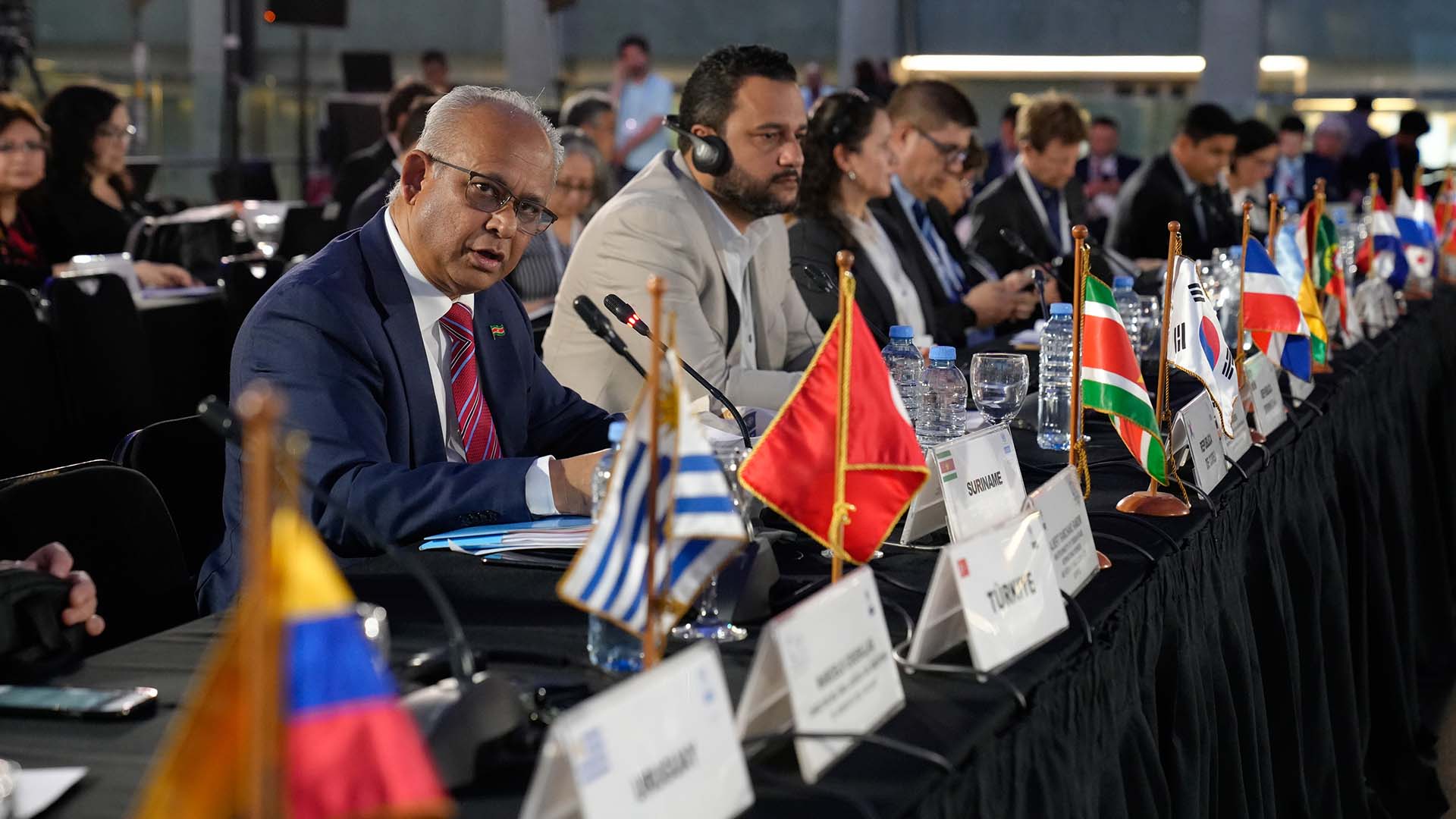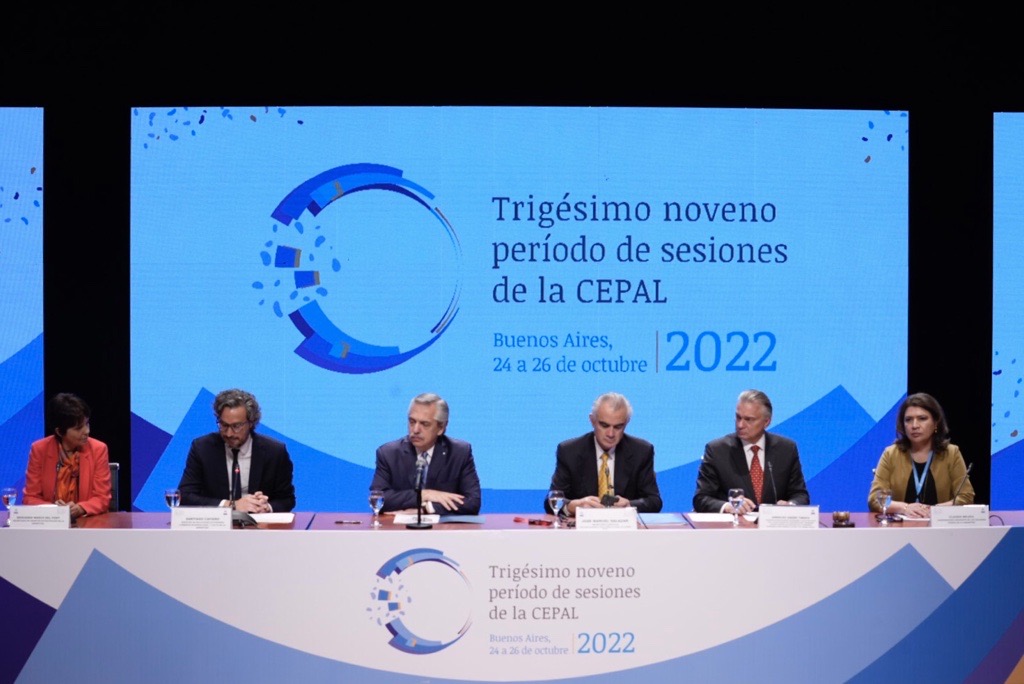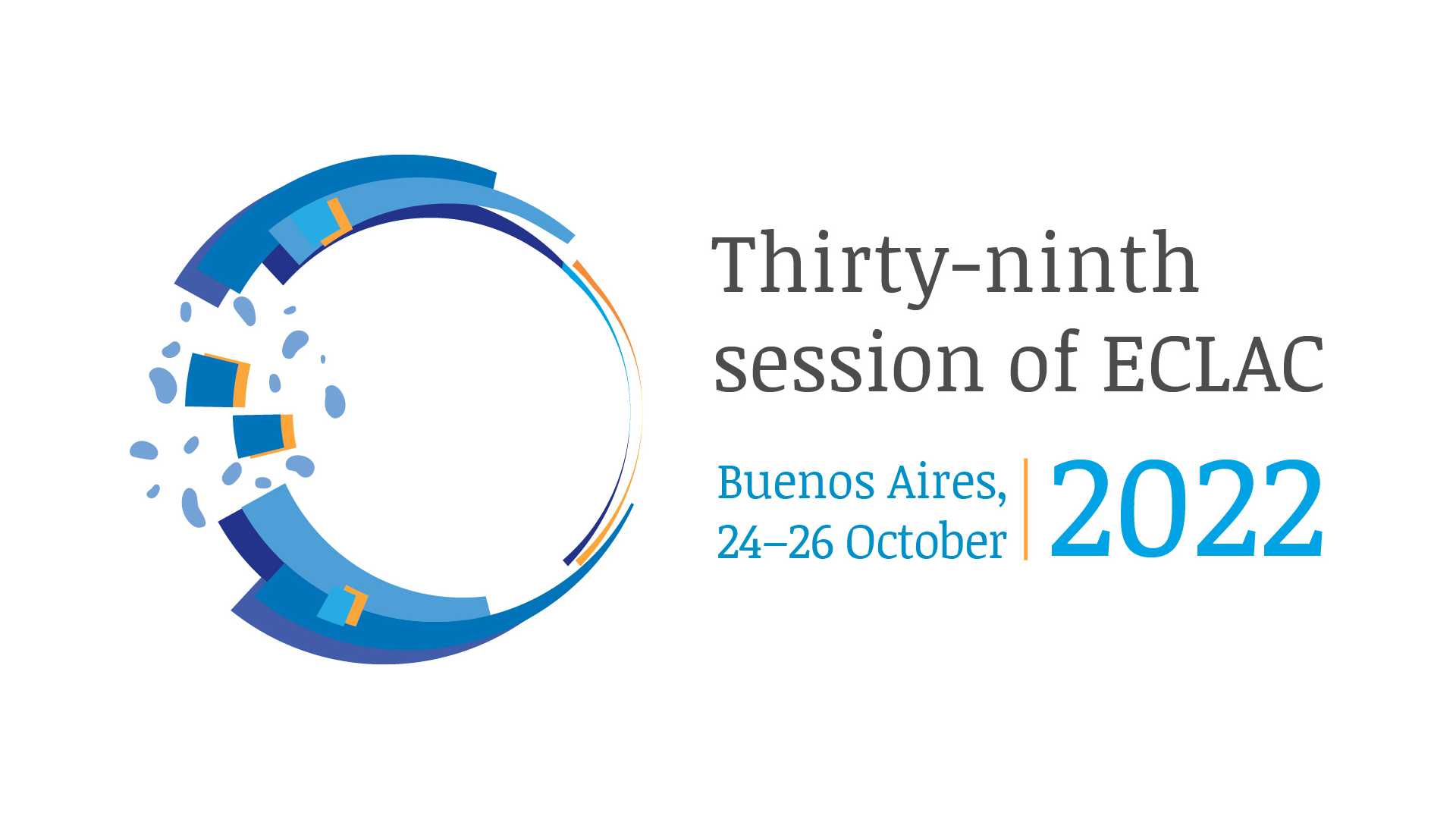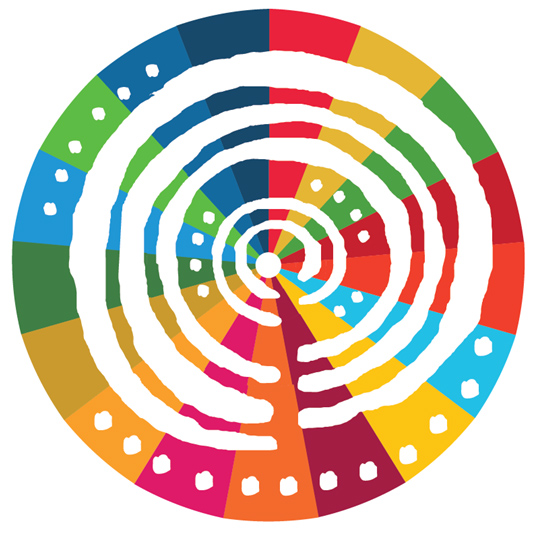Investment in Strategic Sectors and International Cooperation are Key to the Region’s Development in the Current, Critical Situation
Representatives of governments and international organizations participated in the second day of the thirty-ninth session of ECLAC, which is taking place in Buenos Aires, Argentina.

Representatives of governments and international organizations recognized today the importance of investing in sectors that would promote economic growth, the decarbonization of economies and social inclusion in order to make progress on Latin America and the Caribbean’s sustainable development in the current context of crisis, on the second day of the thirty-ninth session of the Economic Commission for Latin America and the Caribbean (ECLAC), which is taking place through Wednesday, October 26 in Argentina.
The day began with the High-level seminar. Panel 3 - Sectoral investment and strategies: drivers of sustainable development, which was moderated by Mercedes Marcó del Pont, Secretary for Strategic Affairs of Argentina, and where participants stressed the need to move forward on the productive diversification and transformation of the region’s countries based on digital technologies and innovation in order to improve productivity, create quality jobs and close inequality gaps.
In this framework, they indicated that foreign investment flows must be aligned with countries’ development goals and leverage their industrial and technological capacity. For that to occur, planning, workforce availability, a regulatory framework and financing are needed, the representatives emphasized.
If the region’s abundant natural resources are not taken advantage of to transform countries’ productive structures, we may face another lost decade, it was said on the panel where participants analyzed some strategic sectors such as agri-food systems, that of medical devices and sustainable tourism, to name a few.
Following that, the High-level seminar. Panel 4 - International cooperation in the face of a new multilateralism took place, moderated by Sabina Frederic, President of the Argentine Agency for International Cooperation and Humanitarian Assistance - White Helmets. There, participants reiterated that development classifications based solely on the criteria of per capita income do not reflect the multidimensional vulnerabilities, structural gaps, and financing and technical cooperation needs of the region’s countries – which is even truer in the current scenario, which was described by ECLAC’s Executive Secretary, José Manuel Salazar-Xirinachs, as a “development crisis.”
The representatives stated that the progressive “graduation” of Latin American and Caribbean countries from Official Development Assistance (ODA) works against fulfillment of the 2030 Agenda’s Sustainable Development Goals (SDGs), which is why some are seeking to advance the “development in transition” approach, while also strengthening multilateralism, South-South and triangular cooperation and mixed funds, among other modalities for cooperation that is bilateral, regional or bi-regional (with strategic partners like Europe).
In the afternoon, Raúl García-Buchaca, Deputy Executive Secretary for Management and Programme Analysis of ECLAC, presented to delegates the report on 2021 activities and the draft programme of work for 2024 of this United Nations regional commission.
“ECLAC’s programme of work for 2024 is aligned with the 2030 Agenda for Sustainable Development and geared towards a transformative recovery in order to leave no one behind,” the official said, thanking countries for the trust and support received over the organization’s nearly 75 years in existence.
After that segment, distinct representatives presented reports on the activities of the subsidiary bodies of ECLAC and the outcomes of other intergovernmental meetings organized by ECLAC since its thirty-eighth session, including the Conference on Science, Innovation and Information and Communications Technologies, the Regional Council for Planning, the Statistical Conference of the Americas, the Committee on South-South Cooperation, the Caribbean Development and Cooperation Committee (CDCC), and the Regional Intergovernmental Conference on Ageing and the Rights of Older Persons in Latin America and the Caribbean.
These were joined by the Conference of the Parties to the Regional Agreement on Access to Information, Public Participation and Justice in Environmental Matters in Latin America and the Caribbean, the Regional Conference on Women in Latin America and the Caribbean (the 15th edition of which will take place on November 7-11, 2022, also in Argentina), the Ministerial Conference on the Information Society in Latin America and the Caribbean, the Regional Conference on Social Development in Latin America and the Caribbean, and the Regional Conference on Population and Development in Latin America and the Caribbean.
On the final day of the thirty-ninth session of ECLAC, which is being held at the Centro Cultural Kirchner and has convened the Commission’s 46 Member States and 14 associate members, a dialogue of foreign ministers and high-level authorities will take place, with remarks by Santiago Cafiero, Minister of Foreign Affairs, International Trade and Worship of Argentina, José Manuel Salazar-Xirinachs and Josep Borrell, High Representative for Foreign Affairs and Security Policy of the European Union and Vice-President of the European Commission, among other officials.
Related content

It is Time to Raise the Level of Ambition and Promote Transformative Actions for Development in Latin America and the Caribbean
With the presence of Argentina’s President, Alberto Fernández, authorities inaugurated the thirty-ninth session of ECLAC today in Buenos Aires.

Latin America and the Caribbean Must Redouble Efforts to Transform Development Models and Put Policies for Productive Transformation and Diversification at the Center
At its thirty-ninth session, which begins this Monday, October 24 in Buenos Aires, ECLAC will present the region’s countries with its proposal for driving higher, more sustained growth and…
Related event

Thirty-ninth session of ECLAC
The thirty-ninth session of the Economic Commission for Latin America and the Caribbean (ECLAC) will be held from 24–26 October 2022, at the Centro Cultural Kirchner in Buenos Aires, pursuant to…
Type
Country(ies)
- Latin America and the Caribbean
-
Argentina
Contact
Public Information Unit
- prensa@cepal.org
- (56 2) 2210 2040



